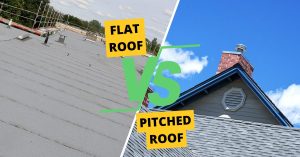Are you considering a roof replacement or repair for your home? If so, you might be wondering if the cost of this essential home improvement project is tax-deductible. In this comprehensive guide, we’ll delve into the intricacies of roof replacement and repair costs and explore whether they qualify for tax deductions or credits.
Understanding Roof Replacement and Tax Benefits
What exactly is a roof replacement?
A roof replacement involves removing the existing roof system and replacing it with a new one. This process typically includes installing new roofing materials, such as shingles or metal panels, to ensure the integrity and longevity of the roof.
Are roof replacements considered a home improvement?
Yes, replacing a roof is considered a significant home improvement project. It not only enhances the aesthetic appeal of your home but also protects it from the elements, thereby increasing its value and longevity.
How does the IRS view roof replacement for tax purposes?
The IRS generally considers expenses related to home improvement projects, including roof replacement, as capital expenditures. These expenses are typically not deductible in the year they are incurred but may be eligible for tax benefits over time.
Determining Tax Deductibility of Roof Replacement

Can you deduct the cost of a new roof on your taxes?
The cost of a new roof is generally not tax deductible as a direct expense in the year of replacement. However, certain expenses associated with roof replacement may qualify for tax benefits under specific circumstances.
What tax benefits are available for roof replacement?
While the cost of the new roof itself may not be deductible, you may qualify for tax credits or deductions for energy-efficient upgrades or improvements. For example, installing an energy-efficient roof or solar shingles may make you eligible for federal tax credits or deductions.
How can you find out if your roof replacement qualifies for tax benefits?
To determine if your roof replacement project qualifies for tax benefits, it’s essential to consult with a knowledgeable roofing contractor or a tax professional. They can assess your specific situation and provide guidance on available tax incentives and deductions.
Maximizing Tax Savings on Roof Replacement

What steps can you take to maximize tax savings on roof replacement?
To maximize tax savings on your roof replacement project, consider the following:
- Choose energy-efficient roofing materials: Opt for energy-efficient roofing materials certified by Energy Star to qualify for federal tax credits.
- Keep detailed records: Maintain thorough documentation of all expenses related to your roof replacement, including materials, labor costs, and any energy-efficient upgrades.
- Consult a tax advisor: Seek guidance from a tax advisor or accountant to understand how roof replacement fits into your overall tax strategy and to ensure compliance with tax laws.
How can roof replacement help you save money on taxes?
While roof replacement expenses may not directly reduce your tax liability, taking advantage of available tax credits or deductions can help offset the cost of the project and reduce your overall tax burden. Additionally, investing in energy-efficient upgrades can lead to long-term savings on energy bills.
Conclusion: Understanding the Tax Implications of Roof Replacement
In conclusion, while the cost of a new roof may not be tax deductible as a direct expense, there are potential tax benefits available for homeowners who undertake roof replacement projects. By choosing energy-efficient materials and consulting with tax professionals, you can maximize tax savings and ensure compliance with relevant tax laws. Remember to keep detailed records and explore all available options to make the most of your roof replacement investment.
Key Takeaways:
- Roof replacement expenses are generally not directly tax deductible but may qualify for tax credits or deductions for energy-efficient upgrades.
- Consult with a knowledgeable roofing contractor or tax professional to determine eligibility for tax benefits and maximize savings.
- Keep thorough documentation of all expenses related to your roof replacement project to support any potential tax deductions or credits.






